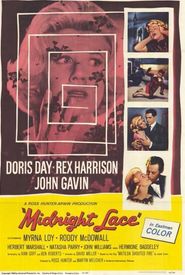Person Biography:
Elspeth March was a talented British actress born Jean Elspeth Mackenzie into a military family. She was educated at Sherborne School for Girls in Dorset and trained at the Central School of Speech and Drama under the guidance of Elsie Fogerty. March's early career was marked by a variety of roles at the Birmingham Rep, including the title role in Bernard Shaw's Saint Joan and Elizabeth in Rudolf Besier's The Barretts of Wimpole Street.
She also appeared at the Malvern Festivals, where she played many Shavian roles, including Vashti in The Simpleton of the Unexpected Isles and Epifania in The Millionairess. March's versatility was showcased in her performances, including her portrayal of The Widow Quin in Synge's Playboy of the Western World and Orinthia the seductive royal mistress in The Apple Cart.
March married fellow actor Stewart Granger in 1938 and the couple performed together in several plays. During World War II, she left the stage to serve as a driver for the American Red Cross. After the war, March's career was marked by some disappointing roles and productions, but she did have success in Noel Coward's Peace in Our Time and as Ftateeta in the Olivier/Vivien Leigh production of Caesar and Cleopatra.
March continued to appear in a variety of productions throughout the 1950s and 1960s, including Tennessee Williams's Eccentricities of a Nightingale and Rodney Ackland's The Dark River. She also had a successful television and film career, starting with Mr. Emmanuel in 1944. March was known for her strong personality, her love of reading, and her loyalty to her family and friends.
Throughout her career, March was praised for her distinctive style and versatility as an actress. Despite facing some challenges and disappointments, she remained a dedicated and talented performer until her retirement.









































